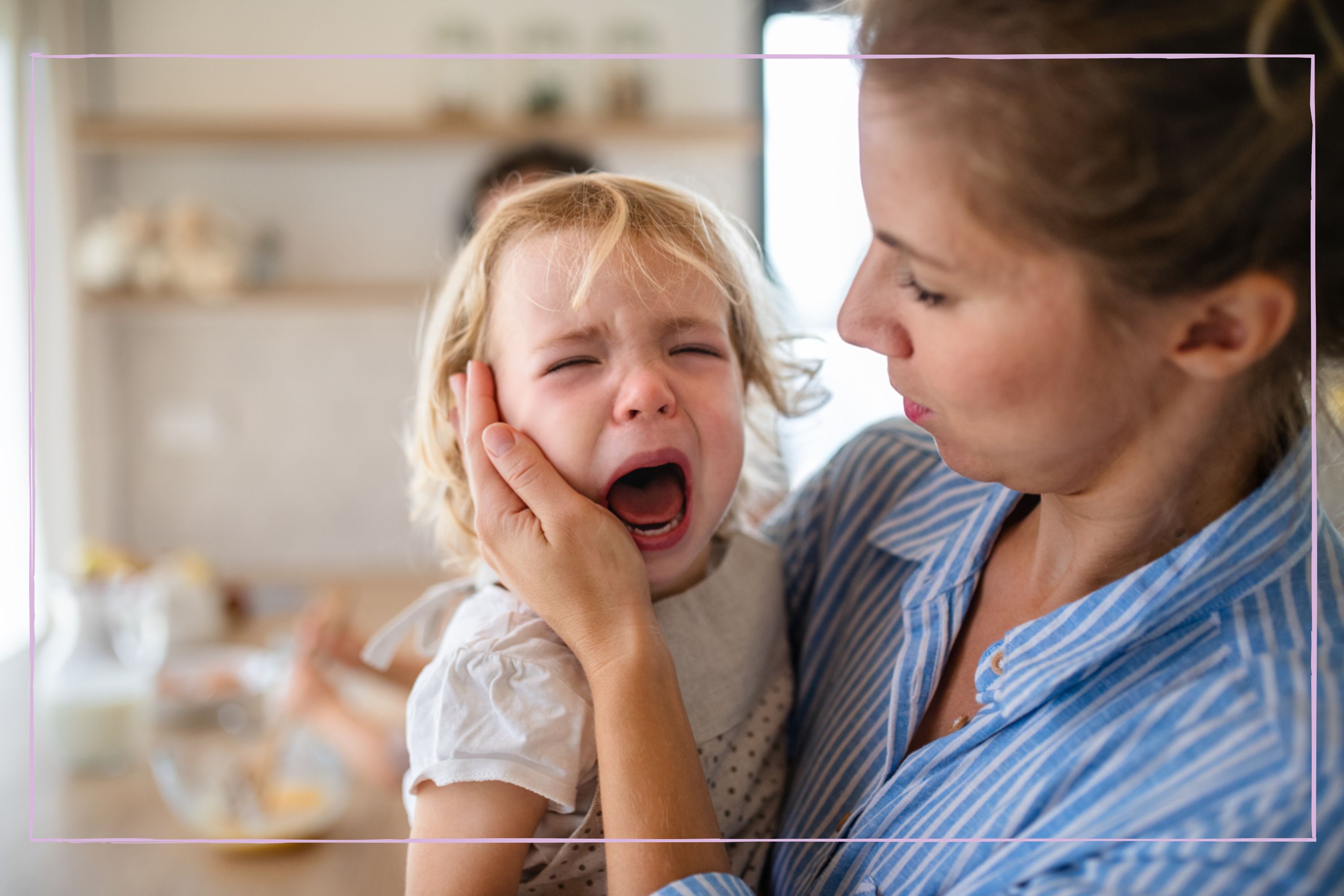‘Positive consequences’ could finally get your child to listen to you - here’s how to use them
“Using positive consequences creates positive association with the behaviour and parent”

A parenting expert has broken down how to use ‘positive consequences’ to get your child to listen to you and understand the consequences of their bad behaviour better - here’s how to keep your cool and use them effectively.
When faced with bad behaviour, a tantrum, or plain stubbornness from a child, it can be easy to lose your cool, especially when it's just be 'one of those days.' No matter what parenting style you chose to follow, the mental load of parenting day in and day out can often just become too much and snapping at bad behaviour is all too easy.
But one parenting expert has now urged parents to remove the negativity from their reprimands, no matter how many times they've been forced to wonder if their child is actually even listening to them, and use 'positive consequences' to get that naughty behaviour better under control.
Taking to Instagram, parenting expert Ralphie, known as SimplyOnPurpose online, shared, "Parents always want to be pointing a figure at what TO DO, not what not to do. Positive consequences do just that. They get the good going.
"It's very natural for parents to use threats of taking things away to motivate their kids," she says adding the example, "If you don't keep your hands to yourself then we are leaving!"
But Ralphie wants us to flip that negative into a positive. "Using positive consequences adds to a child's life and creates positive association with the behaviour and parent," she explains. "If you can keep your hands to yourself then we can stay and play."
A post shared by Ralphie• Positive Parenting (@simplyonpurpose)
A photo posted by on
The simple idea at the core of positive consequences is to encourage good behaviour instead of punishing bad behaviour. By being gentler with the way we speak to kids during their emotional outbursts, we can show them that we acknowledge the feeling causing their bad behaviour while still condemning the behaviour itself. This gentle approach will help the child feel safe and make them more likely to listen to reprimands and change their behaviour.
GoodtoKnow Newsletter
Parenting advice, hot topics, best buys and family finance tips delivered straight to your inbox.
The idea goes hand in hand with many of the parenting hacks that have recently been shared online, from the gentle way to deal with children who laugh in your face when you reprimand them to the simple routine switch that will make your kids listen more and pushback less.
Charlie Elizabeth Culverhouse is a news writer for Goodtoknow, specialising in family content. She began her freelance journalism career after graduating from Nottingham Trent University with an MA in Magazine Journalism, receiving an NCTJ diploma, and earning a First Class BA (Hons) in Journalism at the British and Irish Modern Music Institute. She has also worked with BBC Good Food and The Independent.
-
 The 'incredibly helpful' 30-second rule – liked by nearly 2 million people – that your kid needs to know about
The 'incredibly helpful' 30-second rule – liked by nearly 2 million people – that your kid needs to know aboutThis useful piece of advice is worth remembering for all of us, not just our children
By Adam England
-
 What is ‘sturdy parenting’? Child psychologist Dr Becky explains the benefits of this technique
What is ‘sturdy parenting’? Child psychologist Dr Becky explains the benefits of this techniqueIf you're at a loss when it comes to disciplining your kids, sturdy parenting might help - and it's approved by child psychologist Dr Becky.
By Ellie Hutchings
-
 3 tips to set screen time boundaries from parenting experts Dr Becky Kennedy and Professor Emily Oster - and #1 is an important reminder
3 tips to set screen time boundaries from parenting experts Dr Becky Kennedy and Professor Emily Oster - and #1 is an important reminderStruggling to set screen time boundaries with your kids? Parenting experts Dr Becky Kennedy and Professor Emily Oster have shared three top tips.
By Ellie Hutchings
-
 Could 'lazy parenting' be the next big thing? 2 psychologists share why it can be beneficial for development, but not everyone agrees
Could 'lazy parenting' be the next big thing? 2 psychologists share why it can be beneficial for development, but not everyone agrees'We need more lazy parents' and here's why, according to two child psychologists
By Ellie Hutchings
-
 Parents, do you know what H.E.L.P. stands for? Psychologists swear by this acronym to navigate those tough parenting moments we all face
Parents, do you know what H.E.L.P. stands for? Psychologists swear by this acronym to navigate those tough parenting moments we all faceRemember: Halt, Empathy, Limits, Proximity...
By Ellie Hutchings
-
 Sticker charts 'don't work in the long run' says psychotherapist - try these 8 tips to teach kids intrinsic motivation instead
Sticker charts 'don't work in the long run' says psychotherapist - try these 8 tips to teach kids intrinsic motivation insteadOne expert has explained eight things you can do as a parent to help your child develop intrinsic motivation - and it means abandoning the sticker chart.
By Ellie Hutchings
-
 Reflective parenting could help your teenager manage their big emotions, new research shows - here are 5 steps to try
Reflective parenting could help your teenager manage their big emotions, new research shows - here are 5 steps to tryThe teenage years are tough for everyone involved. But research has suggested that an approach known as 'reflective parenting' can be the key to reconnecting.
By Ellie Hutchings
-
 These 5 'game changing' phrases can teach your children about the mental load, according to a psychologist - and it could set them in good stead for adulthood
These 5 'game changing' phrases can teach your children about the mental load, according to a psychologist - and it could set them in good stead for adulthood"Change at home can change society"
By Ellie Hutchings